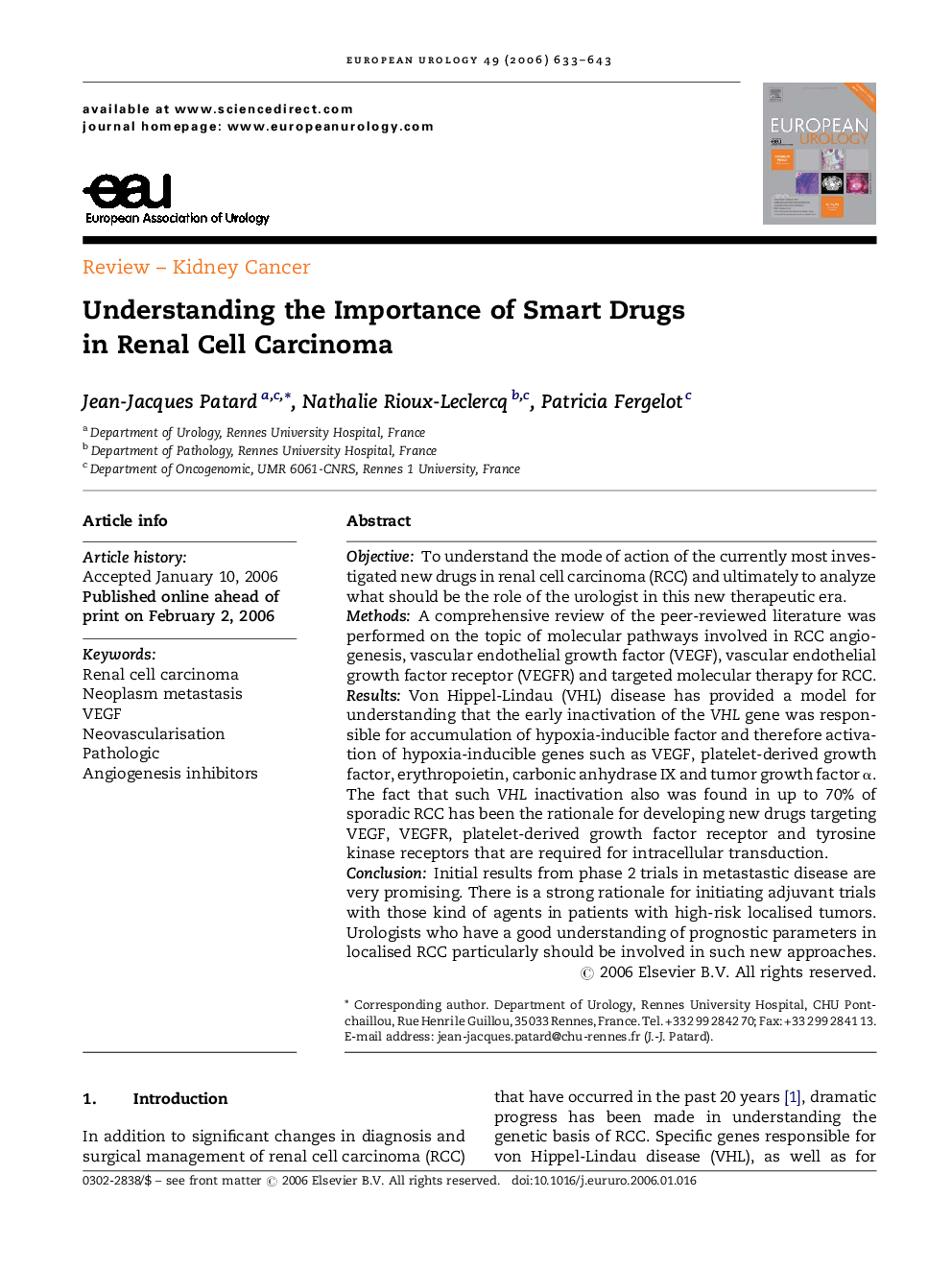| Article ID | Journal | Published Year | Pages | File Type |
|---|---|---|---|---|
| 3926422 | European Urology | 2006 | 11 Pages |
ObjectiveTo understand the mode of action of the currently most investigated new drugs in renal cell carcinoma (RCC) and ultimately to analyze what should be the role of the urologist in this new therapeutic era.MethodsA comprehensive review of the peer-reviewed literature was performed on the topic of molecular pathways involved in RCC angiogenesis, vascular endothelial growth factor (VEGF), vascular endothelial growth factor receptor (VEGFR) and targeted molecular therapy for RCC.ResultsVon Hippel-Lindau (VHL) disease has provided a model for understanding that the early inactivation of the VHL gene was responsible for accumulation of hypoxia-inducible factor and therefore activation of hypoxia-inducible genes such as VEGF, platelet-derived growth factor, erythropoietin, carbonic anhydrase IX and tumor growth factor α. The fact that such VHL inactivation also was found in up to 70% of sporadic RCC has been the rationale for developing new drugs targeting VEGF, VEGFR, platelet-derived growth factor receptor and tyrosine kinase receptors that are required for intracellular transduction.ConclusionInitial results from phase 2 trials in metastastic disease are very promising. There is a strong rationale for initiating adjuvant trials with those kind of agents in patients with high-risk localised tumors. Urologists who have a good understanding of prognostic parameters in localised RCC particularly should be involved in such new approaches.
